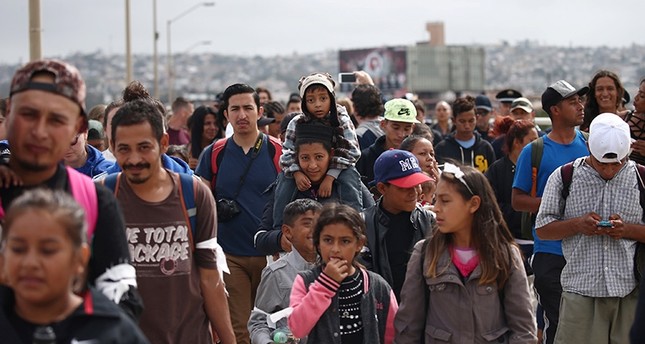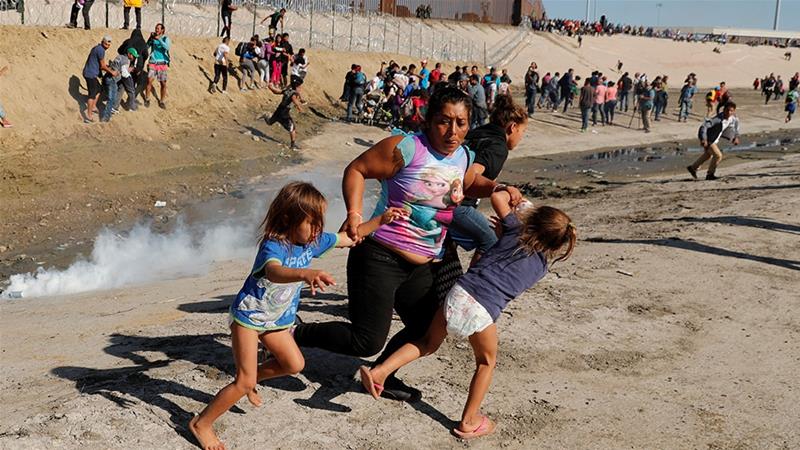Hannah Arendt on the Human Condition
Hannah Arendt would certainly not claim that our politics is dignified. To the contrary, she would be among the voices warning of the current risks to our democracy in its recent lurch toward autocracy. Arendt ranks high among the most important political theorists of the 20th century. Many of you may want to place her somewhere on the familiar left-right spectrum in political thought. You will be frustrated. She isn’t really interested in what we have traditionally thought of as right-wing or left-wing political ideologies. Her political thought is mainly developed in opposition to totalitarianism.
Arendt’s political thought is shaped by her formative experience as a survivor of Nazi Germany. She was a political activist against the rising power of the Nazis in the early 30s. She became a close student of rising anti-semitism and helped Jewish people escape from Germany. Her activism apparently struck a nerve since Arendt was detained and interrogated for 8 days by the Gestapo. It was clear that Germany was no longer safe for her, and she fled to France where she continued her work for the Jewish cause. In France she gave lectures and helped to organize the emigration of young Jewish people to Palestine. In 1940, in anticipation of the Nazi invasion of France, Arendt was interned in Paris along with other Jewish refugees from Germany. She was among 200 out of 7000 interned women who managed to escape. She eventually managed to leave France for the US in spite of lacking official papers. Arendt was a stateless refugee for 18 years. During this time, she thought and wrote extensively about the dehumanizing experience of the stateless refugee.
Arendt’s later political thought is best understood through the lens of her formative experience with Nazi totalitarianism.
On Totalitarianism
“On Totalitarianism” may be Arendt’s best-known theoretical work. The point of totalitarianism, as Arendt sees it, is to strip people of their dignity, humanity and individuality. It does so by pitting a dominant “us” against a marginalized “them.” It is most obviously the oppressed who’s dignity, freedom and individuality are stripped away under authoritarian systems. But then the oppressors are also homogenized and reduced to cogs in the oppressive machinery. No one is free under totalitarianism with the possible exception of the strong man or the great leader.
Arendt is well known for coining the expression “the banality of evil” in her coverage of the trial of Adolph Eichmann, a Nazi architect of the death camps. The word “banal” means unoriginal, commonplace, obvious or boring. Many have misunderstood Arendt to be playing down evil. Quite controversially, Arendt did not find Eichmann monstrous. She found him mediocre, a small, thoughtless bureaucrat who was just following orders. The remarkable, radical and horrifying nature of evil under totalitarianism, in Arendt’s view, is that tolerating and participating in evil becomes normal, commonplace, banal.
Great evil doesn’t require evil intention or malicious demonic character in the context of totalitarianism. All the radical evil of the holocaust requires is for normal people to thoughtlessly follow directions. The racist ideology and propaganda of Nazism made this possible. But only because ordinary people like Eichmann and so many other Germans refused to think.
To think, here, is not merely to have thoughts. Eichman had plenty of cliched thoughts and even some clever distorted rationalizations for what he did. He wasn’t thoughtless out of stupidity. He simply didn’t bother to consider the consequence of his work for others. He wouldn’t reflect on the merit of the ideology he subscribed to or the justness of the directions he followed.
The Human Condition
In her less widely read later work “The Human Condition” Arendt lays out her vision of how well functioning communities can support the dignity of the person. The result is not a theory of the ideal state, or a governing philosophy, so much as an extended meditation on the sort of human life a well-functioning public realm can support. Of course, there are lots of warnings about hazards and obstacles to building such a public realm along the way.
Arendt finds dignity in politics when ordinary people can speak and act to shape their own communities, societies and destinies. Arendt’s mission in political theory is to explain what it takes to restore the dignity of politics. In her understanding of the political, this isn’t really about the behavior of our elected leaders. The point of politics is to create conditions where people can live in dignity as free and equal citizens in the public realm. She aims to cultivate a public realm where people are free to speak and act as themselves, under their own initiative, free from necessity, especially including the domination of others.
To work towards an understanding of what a dignified politics that would support human freedom would look like, it will help to examine how our human lives are conditioned. Arendt is suspicious of the idea of an essential human nature. Even if there is such a thing, for us to claim knowledge of it would be like “jumping over our own shadow.” So, talk of the human condition is to be carefully distinguished from talk of human nature.
Our lives are conditioned by all the things and people we encounter. We in turn condition the world and others. These conditioning influences vary in all sorts of ways. Perhaps the only things that condition human lives universally are our natality, our birth, and our mortality. Our natality introduces plurality to the human condition. Arendt’s notion of plurality isn’t our contemporary concept of pluralism. When we talk of pluralism we are generally referring to a plurality of identities along familiar lines of race, ethnicity, gender etc. Pluralism in this familiar sense still refers to broad groupings of individuals according to a rather narrow range of identities. The kind of plurality Arendt is concerned with is our uniqueness as individuals. Each of us comes into the world as something new conditioned at birth. Plurality for Arendt is concerned with who we are, not what we are. Seeing our individuality to fruition, on her view, is the highest priority of liberatory politics.
We are all born as unique individuals with our own unique contributions to make to the world and humanity. Our mortality sharply limits the opportunity for our individuality to have lasting impact in the world. We are conditioned by our mortality to transcend these limits by making lasting contributions to the world. Leading lives that are not isolated and ephemeral requires a public sphere where we interact with others and contribute something of ourselves to broader communities. So, Arendt’s idea of plurality, our uniqueness as individuals, does not lead to what we might now think of as individualism. Leading full and becoming human lives means entering communities, participating and helping to shape them, as individuals. We transcend our mortality by participating in a world populated by other people.
Arendt’s talk of the world here isn’t referring just to the natural world we occupy in the same way animals do. Rather, as humans conditioned by natality and mortality, we create and occupy the human world of artifact, technology and culture. We condition and are conditioned by this human world. Being fully human and leading an active life where we can transcend our biological morality demands that we create a human world where we can make a difference. This is the point of politics. The point of politics is to create and sustain communities and political structures where we can contribute something of ourselves to the future, where we can create and act in ways where we condition the world, as opposed to just being passively conditioned by it.
It’s worth noting, as Arendt anticipates, that the natural world is no longer something separate from the human world we create. We condition and are conditioned by all of nature at this point. Nature is artifactual as much our factories, political institutions and garbage dumps. All of the world is the human world, conditioned by our politics whether these are free and democratic, totalitarian or something else. Well before Rachel Carson, Arendt anticipates environmental consciousness.
Labor, Work and Action
We lead our active lives in one of three modes: Labor, Work, and Action
Labor consists of the activity that is necessitated by our biological needs as animals. We are compelled in the realm of labor and the life of labor is one we share with other animals.
Work, as Arendt uses the term, is the activity of making things. Here we act according to a plan to produce a certain product or outcome. Our activity is a means to a predetermined end in the realm of work. And our activity can proceed in relative isolation. By making things that outlast us, work offers some limited opportunity to transcend our mortality. But our work is what we do, not who we are. So, what we contribute to the world beyond our morality through work is a thing, hopefully useful, but not exactly ourselves.
When Arendt speaks of action, she is referring to activity that is not conditioned by biological necessity nor by the goal of making something according to a pre-ordained plan. Action and speech are the kinds of activity where we engage others in a way that is not conditioned by necessity, pre-ordained plans or domination. In action and speech we interact with others as free and equal people. Action proceeds from who we are. The realm of action and speech is where we reveal to the world who we are. We both condition our shared world and are conditioned by it through action and speech.
The point of politics, as Arendt sees it, is to create and sustain a public realm that supports action and speech, where we can contribute something of ourselves to a larger community. This will not be possible when some leader or some group imposes its will on society. Under totalitarianism, fascism, autocracy, or pick your term, politics is reduced to work, where some impose their pre-ordained plan on others. Action and speech are no longer possible in this condition. In this condition people are reduced to things, raw materials, or laborers. Those on the bottom of a totalitarian system are systematically stripped of their humanity and disposed of as things or waste products. But even those on top, the oppressors, are reduced to animality, functioning only as laborers, active only out of necessity, just following orders, not thinking.



